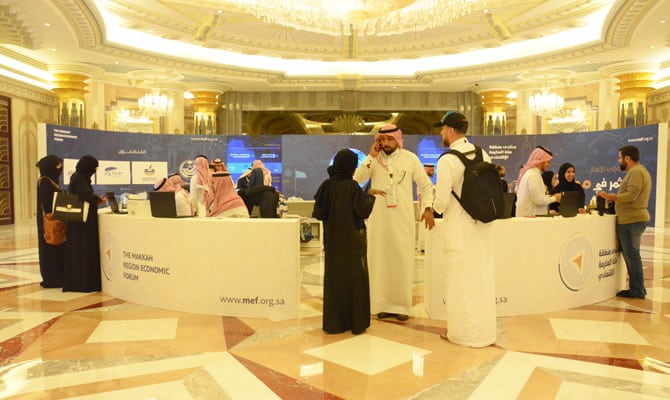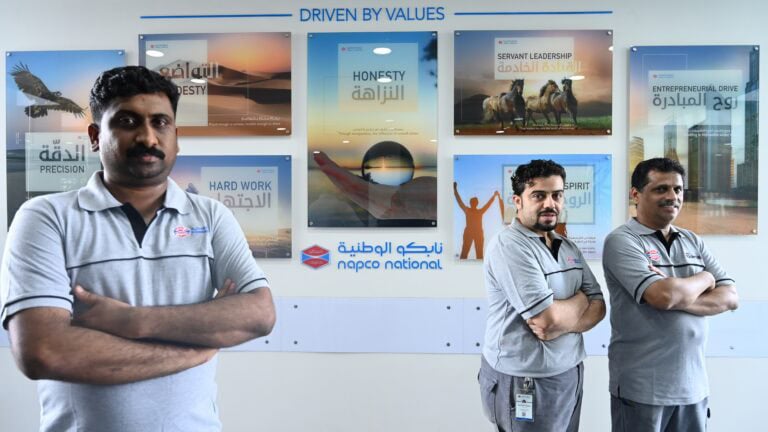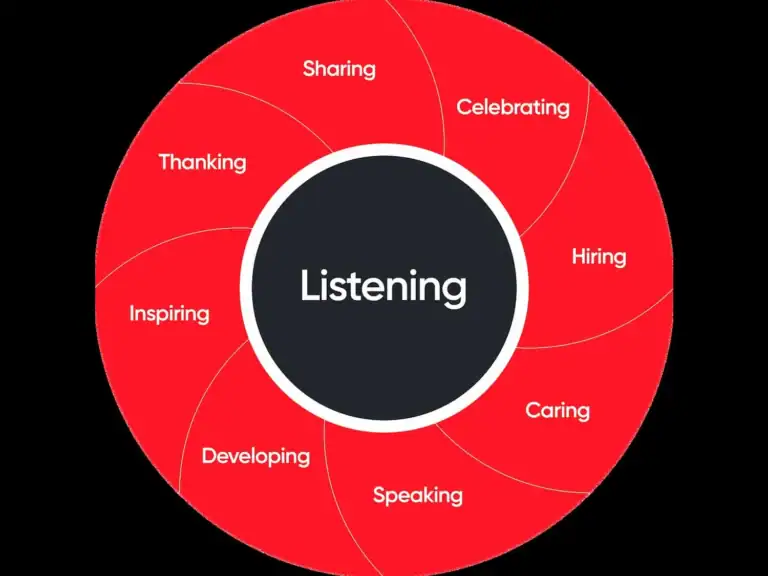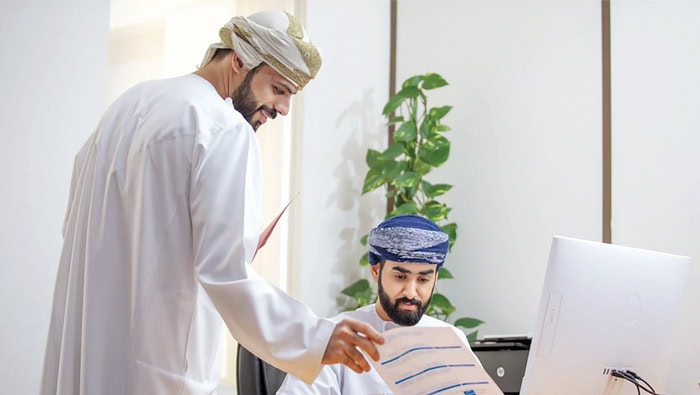6 Successful Practices to Create a Culture of Innovation in the Travel and Tourism Sector in KSA


Jana Saab
The excellency of Saudi Arabia’s Minister of Tourism, Ahmed bin Aqeel Al Khateeb, announced that “we must embrace the opportunities that the digital era presents us. We are welcoming the most innovative and disruptive minds in the world to create better digital tourism regulations. We want travelers and investors to have certainty that smart regulations are being adopted across the sector. Saudi Arabia will continue to pioneer and lead these efforts at a national and global scale, ultimately creating more jobs, more prosperity and bringing more visitors into the Kingdom.” Saudi Arabia has embarked on investing in modern programs that aim at reaching the path of global tourism and providing various tourism offerings.
The challenges that Saudi Arabia faces may hinder the travel and tourism sector and delineate its improvement. Oliver Martin once said, “One of the largest barriers to growing travel and tourism is that infrastructure on the ground is completely new and limited”. This means that its infrastructure should match the needs of its tourists. Indeed, the need to be competitive is important to attract tourists worldwide. Additionally, its openness to other cultures will grab the attention of all people who are willing to visit touristic places there.
In this realm, there is a high need for establishing a modern culture of innovation in the travel and tourism sector in Saudi Arabia, which contributes to its prosperity and evolution. Moreover, taking into consideration the employees’ well-being as a priority enables companies to evolve and thrive.
According to the Great Place to Work® Trust Index© anonymous survey at small companies in KSA, 82% of male employees outperform women (81% in competency). Furthermore, 90% of the employees agreed with the presence of a culture of innovation in the company. This implies the significance of cultivating innovation in the workplace. Being among the companies at the top of the list gives you the privilege to be trusted more and be eligible to attract skilled candidates to your organization.
Let’s delve deeply into the six best practices that aid in developing a culture of innovation in the travel and tourism sector in KSA.
1. Offering employee training and mentorship programs in the Travel and Tourism Sector in KSA
When it comes to the development of staff members at a company, there is a need to train them and be up-to-updated with the new technologies in the workplace. Indeed, mentorship programs improve employees’ service skills and language skills. Also, they help in the enhancement of cultural awareness. In this way, they can understand global cultures and create their services based on them. The results obtained from the Great Place to Work® Trust Index© Survey that was submitted to employees at a company in KSA show that 65% of the employees feel that their personalities have developed because of receiving these programs.
2. Ensuring gender diversity
Men and women need to get equal opportunities to feel that there is no gender discrimination in the workplace. This creates a strong bond among employees that promotes cultural diversity in the work environment. Besides, respecting cultural diversity drives trust, creates confidence among the team, and increases company pride.
To elaborate more, Michael C. Bush, CEO of Great Place to Work®, said, “This is how it shows up. It’s hard to stay motivated and be ‘all in’ when you wake up with fear and dread that you’ll be out of a job.” Based on the Great Place to Work® Trust Index© Survey that is submitted to a company in KSA, 84% of the employees feel that they are treated fairly, regardless of their gender. This reflects the significance of gender equality in a company.
3. Encouraging Sustainability
Supporting sustainable tourism in Saudi Arabia has a key role in the enhancement of the country’s economy. It is noteworthy to state that in this way, you are supporting eco-friendly tourism that will reshape the future of traveling to Saudi Arabia. Saudi Investment Minister Eng. Khalid Al-Falih emphasizes that “we aspire to connect our investments related to future capabilities, smart cities, and sustainable transportation with travel and tourism.” When employers in this sector invest in this integral part, it grabs candidates to get hired and tourists at the same time to visit the country.
4. Improving Infrastructure
The collaboration between the public and private sectors helps in the development of the tourism sector in KSA. Infrastructure can be achieved through developing luxurious hotels, enabling all means of transportation, and creating eco-friendly areas. Additionally, preserving cultural heritage by organizing cultural events and festivals attracts tourists to discover new places in Saudi Arabia. Moreover, you can empower individuals by offering job opportunities.

5. Supporting Digital Transformation in Tourism in KSA
Alkhateeb assured that “The Digital Tourism Strategy will help us to redesign tourism in the Kingdom and achieve our ambitious Vision 2030 objectives of making Saudi Arabia a world-leading tourist destination.” This emphasizes the importance of the shift towards digital tourism. Creating digital platforms will connect digital investors. This can also help in finding digital tourism solutions. Tourists can browse the website or the application to see the most popular touristic places in KSA. In addition, they can book their trips online.
6. Hire skilled employees
Hiring expert employees can help in understanding the customers’ needs with their experience and innovative ideas. For sure, applying the best strategies to motivate the employees has an integral role in the evolution of the company.
Furthermore, employees who have knowledge and stay updated on market trends will meet the needs of clients and guide them to a suitable path in tourism. For example, professional marketers can launch campaigns that foster the culture of Saudi Arabia to reach their target audience. Moreover, they should master several languages to guarantee excellent communication with tourists from different countries. They have the ability to let the travel and tourism sector in KSA reach the whole globe by collaborating with other international agencies.
In conclusion, the travel and tourism sector in KSA can thrive by being a great place to work, where you attract high-quality employees and build trust with the customers. Reach out to us to get the best solutions and guidance on how to create a healthy and successful workplace environment.
Grab the opportunity to be on the top of the list of the best workplaces in KSA.
You can get certified by Great Place to Work® by submitting your applications to be at the top of the list.
Get ready to elevate your company with Great Place to Work® certification!
Get your company Certified™️

HR Trends in the Middle East 2026
What did 2025 teach us about people management, and what is on the outlook for 2026? From the disruptive forces of AI and skills-based hiring

What Makes Napco a Great Place To Work®? It Starts with Family Spirit and Ends with Impact
What Makes Napco a Great Place To Work®? It Starts with Family Spirit and Ends with Impact About Napco National Napco National has been part of the Saudi industrial landscape since 1956,

9 High-Trust Leadership Behaviors That Build Great Workplaces
Caring, Celebrating, Developing, Employee Experience, Hiring, High-trust leadership, Inspiring, Leadership & Management, Listening, Managerial Communication, Sharing, Speaking, Thanking Every employee should take these behaviors to heart whether or not they are people leaders. I often get asked

The Evolution of Workplace Culture: Why It Matters More Than Ever in 2025
One universal workplace experience is the emotional imprint left by an organization—its energy, trust, and sense of belonging. Although experts may agree on what constitutes

How Purunity Embeds Goodness into Work and Culture
People go where there is pride in the work they do. At Purunity, this sense of pride stems from our core mission: driving innovative and

Powerful Strategies to Cultivate DEI in Omani Workplaces
DEI is not only a buzzword! Developing a diverse, equitable, and inclusive work environment shows that leaders care about their employees, appreciate, and respect their
